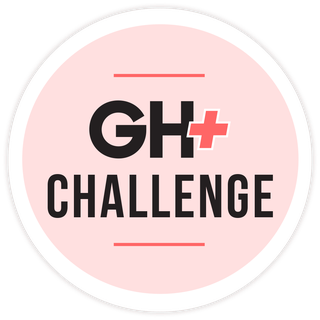
Exclusive to GH+ members, this plan can help you reset your relationship with sugar and live healthier in the long run.
By Alexandra (Allie) Early Published: Jan 27, 2021 8:00 AM EST Save ArticleLike most anything in life, sugar is just fine in moderation — but when you take a closer look at the processed food you're eating, your alcohol intake and some of your favorite condiments, you might notice that you're eating far more sugar than you thought you were, which can lead to issues like acne, low energy and brain fog. While kicking the sugar habit might seem daunting, we've turned the challenge of forming a healthier relationship with the sweet stuff into an easy-to-follow plan packed with science-backed tips and helpful charts.

Good Housekeeping's 21-Day Sugar Detox Challenge breaks everything down for you, including how to step down your sugar intake gradually and reset your taste buds, plus it offers delicious recipes and easy snack swaps. Powered by our in-house health experts, including Stefani Sassos, Registered Dietitian for the Good Housekeeping Institute, and the culinary experts in the Good Housekeeping Test Kitchen, this three-week plan is a recipe for success when it comes to being more mindful about your sugar consumption — and you can download it for free when you sign up for our membership club, GH+.
While sugar definitely is not the enemy, most of us could stand to cut back — the key is to learn the difference between the sugar naturally found in foods like milk and fruit and the added sugar hiding in lots of packaged foods. There are so many benefits to eating less sugar, but here are just a few positive effects you'll soon start to see after starting the Sugar Detox Challenge:
Systemic inflammation is a known acne trigger. And sugar is — wouldn’t you know it? — inflammatory. A study in the American Journal of Clinical Nutrition found that when non-soda-drinkers consumed one 12-oz can of soda a day for three weeks, their inflammation levels increased by 87%. Give up soda and other sweetened drinks, and you might not need as much of that expensive concealer, the research suggests.
Battling brain fog? Sugar may be to blame. One animal study at UCLA concluded that a diet high in added sugar hindered learning and memory. Over time, eating lots of sugar may actually damage communication among your brain’s cells, the study showed.
The crash from a sugar high can leave you with midday sluggishness and the need for a nap. Also, added sugar triggers the release of the hormone cortisol, which interferes with slumber, Lustig says. Cut it out, and you should be more alert during the day and better prepared to catch some zzz’s come bedtime.